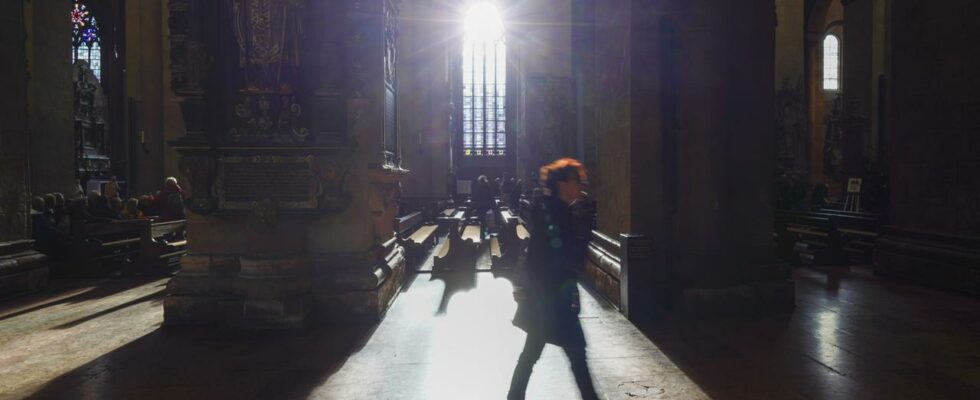How much change is possible in the Catholic Church? This was the question debated by members of the Synodal Committee in Mainz. There is a great desire for more participation by lay people, but canon law sets limits.
The interest of young people in church life is decreasing more and more. That is why the number of their representatives in the Synodal Committee, the reform body that wants to develop and help shape egalitarian structures in the Catholic Church, is small. One of them is Gregor Podschun, the chairman of the Association of German Catholic Youth (BDKJ).
For him, fundamental reforms in his church are unavoidable in view of the shocking sexual abuse: “We must find a way in the German church to create systemic changes that prevent sexualized violence,” he emphasizes, and calls for more participation by lay people.
Headwinds from Rome
But that will be anything but easy. The Vatican insists on the episcopal structures of its church and has long signaled that it will not accept a synodal council, as desired and planned by committed Catholics in Germany. This is where bishops and lay people are supposed to make important decisions together.
The strength of the resistance from Rome was underlined in Mainz by Bernhard Sven Anuth, a canon lawyer from Tübingen. He stressed that advisory bodies with strong lay participation could be set up in the church, and that bishops would then ideally promise to abide by their recommendations. However, according to current canon law, lay people would “realistically have to say goodbye” to having a say in decisions.
Ways beyond canon law
This is bitter for many committed Catholics. Nevertheless, the majority of the members of the Synodal Committee – or so it seemed in Mainz – do not want to be deterred by this clear state of canon law. This reality must be fully acknowledged, stressed the Erfurt dogmatician Julia Knop. At the same time, however, it is also important to find new ways to make the church more humane and flexible:
In my opinion, canon law is not the last word. It sets limits that we should respect, but which we say we must exceed for the sake of the people who have been hurt and abused.
Bätzing: Active communication with Rome necessary
Limburg Bishop Georg Bätzing shares this view. However, according to the chairman of the German Bishops’ Conference, intelligent and active communication with Rome is even more important. Following the visit of a German delegation to the Papal States at the end of March, things are on the right track.
In addition, the Catholic world church is currently in a synodal process, and that is an advantage. Because it allows German Catholics to contribute their experiences and wishes – but in a collegial manner and without being a know-it-all.
Hoping for support from the world church
In addition, German Catholics hope that they will receive support from other countries in their reform efforts. This is why the chairwoman of the Central Committee of German Catholics, Irme Stetter-Karp, says: “We know that we are not the only ones who want to bring about change in this world church.” They are counting on this to generate energy.
However, it is difficult to say how quickly this process will proceed. It is also certainly unfortunate that four of the 27 German Catholic bishops have not been involved in this reform process for some time. The road to reform and greater participation by lay people remains rocky.
On June 28, a delegation from the Bishops’ Conference will travel to Rome for further talks.
Ulrich Pick, SWR, tagesschau, 15.06.2024 18:06

